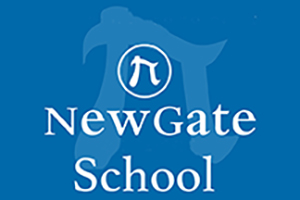NewGate Montessori History Curriculum
“Establishing lasting peace is the work of education; all politics can do is keep us out of war.”
—MARIA MONTESSORI
History Ages 3 to 12
We are all members of the human family. Our roots lie in the distant past and history is the story of our common heritage. Without a strong sense of history, we cannot begin to know who we are as individuals today. Our goal is to develop a global perspective, thus the study of history and world cultures form the cornerstone of our curriculum.
With this goal in mind, we teach history from age three through graduation.
Lower Elementary students study the emergence of the first civilizations and the universal needs of humanity. In the upper elementary level, students begin their formal study of early humans, ancient civilizations, and early American history. In the upper grades we study history, geography, government, current events, economics and cultural studies
We try to present a sense of living history at every level through hands-on experience. We build models of ancient tools and structures, prepare our own manuscripts, make ceremonial masks, and recreate all sorts of artifacts of the everyday life of an historical era.
At the Upper Elementary and Secondary levels, history courses are are carefully integrated with English and the Humanities. Students read the literature and examine the art and music of the historical period that they are studying. For example, during the study of the pre-Civil War period, students typically read Frederick Douglas’ Narratives and the letters of John Brown, study the music and popular culture of this time, and visit historical sites.
The basic needs of man are food, shelter, clothing, defense, transportation, culture, law, religion or spiritual enlightenment, love, and adornment. (This study begins at ages 5-6 and continues throughout the curriculum.)
The concept of time and historical time is developed through many activities and repeated at deeper complexity from age 5:
- Telling time on the clock
- Time-lines of the child’s life
- Time-lines showing the activities of a day, week, month, year
- Family trees
- Time-line of Earth’s history
- Time-line from 8,000 B.C.E. to 2,000 C.E. to study ancient to modern history
The story of the evolution of the planet and its life forms over the eons is first studied at about age 6, along with an overview of human history. This is repeated throughout the curriculum in increasing depth of study.
Each year the child continues to study and analyze the needs, culture, technology, and social history of various periods in history. The trends of human achievement are charted, such as the development of transportation, architecture, great inventions, and great leaders
The Upper Elementary level (ages 9-12) history program follows a three-year cycle of thematic study. Students study whichever themes are being presented that year regardless of their age. In year 1 of the cycle, the class will focus on the creation of the universe, formation of the earth, evolution of life, and early human civilizations. These topics are first introduced at the lower elementary level. At this level, students will go into considerably greater depth and prepare increasingly sophisticated projects and research reports.
Continuing the three-year cycle of thematic history study at the Upper Elementary level (ages 9-12), in year 2 of the cycle, the class will focus on ancient civilizations, including the Mesopotamian cultures, Greece, Rome, ancient China, Byzantium, ending with an introduction to the Middle Ages.
In the third year of the three-year cycle of thematic history study at the Upper Elementary level (ages 9-12), the class will focus on American studies, including an introduction to the history of the United States, American folk culture, technology, children’s literature, government, and geography. They also consider Pre-Colombian Central and South American cultures, the Native American peoples of North America, the age of exploration, and the immigrant cultural groups who came to America from Europe, Africa, Asia, and Latin America.
“If education is always to be conceived along the same antiquated lines of a mere transmission of knowledge, there is little to be hoped from it in the bettering of man’s future.”
—Maria Montessori
ASHTON ROAD
CAMPUS
Age 12 months to Grade 6
5237 Ashton Road
Sarasota, FL 34233
Ph 941-922-4949
PALMER RANCH
CAMPUS
Grades 7-12
8484 S. Tamiami Trail Sarasota, FL 34238
Ph 941-922-4949
GLOBAL
CAMPUS
Grades 7-12
Students attend at home,
from all around the world
Ph 941-922-4949
